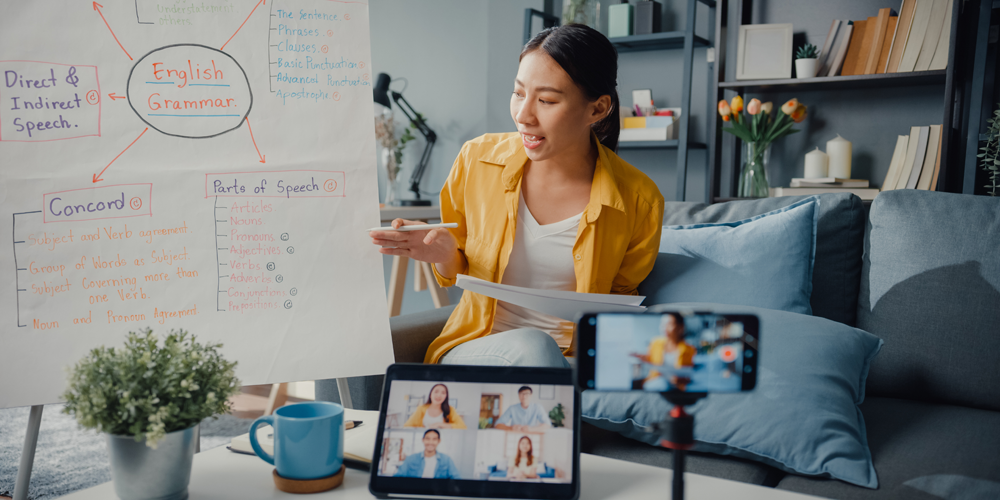The Internet and Education: Empowering All
The advent of the internet has revolutionized the way we access information, communicate, and learn. In an era marked by rapid technological advancements, the internet has emerged as a powerful tool for education, offering unprecedented opportunities for learners of all ages and backgrounds. From online courses and tutorials to educational resources and virtual classrooms, the internet has democratized access to education, bridging gaps and empowering individuals worldwide.
In this post, we’ll explore the transformative impact of the internet on education, its potential to provide equitable learning opportunities for all, and the challenges and opportunities it presents.

The Internet as a Gateway to Knowledge
One of the most significant contributions of the internet to education is its role as a gateway to knowledge. With a few clicks, learners can access vast repositories of information on virtually any topic imaginable. Online encyclopedias, academic journals, e-books, and multimedia resources provide a wealth of information at our fingertips, enabling self-directed learning and exploration. Whether it’s mastering a new skill, delving into academic research, or simply satisfying curiosity, the internet offers unparalleled access to information, empowering individuals to pursue their educational goals independently.
Online Learning Platforms and Courses
In addition to serving as a vast repository of information, the internet has also revolutionized formal education through online learning platforms and courses. Platforms like Coursera, edX, and Khan Academy offer a wide range of courses taught by experts from leading universities and institutions around the world. These courses cover diverse subjects, from computer science and mathematics to humanities and social sciences, making high-quality education accessible to learners regardless of their geographical location or socioeconomic status.
Online learning platforms not only provide flexibility and convenience but also cater to diverse learning styles and preferences. Interactive quizzes, multimedia lectures, and discussion forums engage learners and facilitate active participation, fostering a dynamic learning experience. Moreover, many online courses offer certifications or credentials upon completion, enhancing learners’ employability and professional development.
Virtual Classrooms and Remote Learning
The internet has also transformed traditional classrooms, giving rise to virtual classrooms and remote learning opportunities. Especially in the wake of the COVID-19 pandemic, schools, colleges, and universities worldwide have adopted online learning models to ensure continuity of education. Video conferencing tools like Zoom and Google Meet facilitate real-time interaction between students and teachers, replicating the classroom experience in a virtual environment.
Remote learning offers several advantages, including flexibility, accessibility, and scalability. Students can attend classes from the comfort of their homes, eliminating the need for commuting and accommodating diverse schedules. Moreover, virtual classrooms can accommodate larger numbers of students than traditional classrooms, enabling institutions to reach a broader audience and scale their educational programs more effectively.
However, remote learning also poses challenges, particularly concerning digital equity and access. Not all students have equal access to reliable internet connectivity, devices, or technical support, exacerbating existing educational inequalities. Addressing these disparities requires concerted efforts to ensure that all learners, regardless of their socioeconomic background, have access to the necessary tools and resources for remote learning.
Closing the Digital Divide
The digital divide refers to the gap between those who have access to digital technologies and those who do not. In the context of education, the digital divide poses a significant barrier to equitable access to learning opportunities. To bridge this gap, governments, non-profit organizations, and educational institutions must prioritize initiatives aimed at promoting digital inclusion and providing universal access to the internet and digital devices.
Community initiatives, such as public Wi-Fi networks, mobile libraries, and technology literacy programs, play a crucial role in expanding internet access to underserved communities. By partnering with local stakeholders and leveraging existing infrastructure, these initiatives can empower individuals with the skills and resources they need to harness the educational potential of the internet.
Furthermore, investments in digital infrastructure and broadband expansion are essential for ensuring widespread internet access, particularly in rural and remote areas. Governments and telecommunications providers must collaborate to deploy high-speed internet networks and reduce the cost barriers associated with internet access, making it affordable and accessible to all.
Empowering Learners Through Digital Literacy
In addition to expanding access to the internet, promoting digital literacy is essential for empowering learners to navigate the digital landscape effectively. Digital literacy encompasses the skills and competencies needed to critically evaluate information, use digital tools responsibly, and protect one’s privacy and security online.
Educational institutions play a critical role in fostering digital literacy by integrating digital literacy education into their curricula and providing training and support for students, teachers, and parents. By equipping learners with digital literacy skills, educators can empower them to leverage the full potential of the internet for learning, creativity, and civic engagement while mitigating the risks associated with online misinformation and digital threats.
Moreover, fostering a culture of lifelong learning is essential for harnessing the educational opportunities afforded by the internet. In a rapidly evolving digital landscape, individuals must embrace a growth mindset and a willingness to adapt to new technologies and learning methodologies. By cultivating a passion for learning and continuous self-improvement, learners can leverage the internet as a lifelong resource for personal and professional development.
Transforming Education & Empowering Learners
The internet has transformed education, empowering learners of all ages and backgrounds to access information, acquire new skills, and pursue their educational aspirations. From online courses and virtual classrooms to educational resources and digital literacy initiatives, the internet offers unprecedented opportunities for lifelong learning and self-improvement. However, realizing the full potential of the internet for education requires concerted efforts to bridge the digital divide, promote digital inclusion, and foster digital literacy among learners worldwide.
By harnessing the transformative power of the internet, we can create a more equitable and inclusive educational ecosystem where every individual has the opportunity to thrive and succeed.
